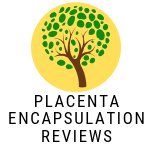What are the risks of placenta encapsulation
There is a rising trend for mothers to consume their own placenta after childbirth. The practice has gained many high-profile supporters, such as Kim Kardashian. However, medical experts advise against eating the placenta after birth. The Centre for Disease Control in the United States warns against this practice because of possible dangers and risks. A magistrate court in the United Kingdom has ruled that human consumption of raw or cooked placenta poses an imminent danger to human health. Yet, the trend of consuming your placenta after childbirth is on the rise.
Sensations of nausea
Some mothers report sensations of dizziness, headache and nausea after digesting their placenta. Medical studies have not confirmed or denied whether these sensations are linked to the consumption of the placenta or other factors. A UNLV researcher called Sharon Young, who has studied the practice of placenta encapsulation, says that there isn’t any reliable medical evidence that there is any benefit to taking placenta pills. Neither has any evidence been found to confirm the reason for some of the negative side effects, such as dizziness.
Jeffrey Keelan from the School of Women’s and Infants’ Health believes that these negative sensations may be caused by exposure to toxins in the placenta. He states that the placenta has the capacity to store harmful toxins as a way of protecting the baby from exposure to certain things in the womb, and as such, the mother ingesting the toxins can be harmful. For example, there is evidence to suggest that if the mother is a smoker the placenta will store cadmium, a heavy metal.
A review of published studies in the Northwestern Medicine Review of 2015 didn’t back up any claims for the supposed benefits. But none of the studies addressed the possible risks of ingesting the organ either.
Infection
There are identifiable risks of consuming the placenta. The biggest danger is the risk of contamination. Giving birth is not a sterile activity. There is a high likelihood of bacteria, including fecal bacteria, infecting the placenta. The risk is higher particularly during prolonged or complicated births, during which the placenta can become exposed to many different types of bacteria for a long period of time. If the placenta is exposed to any harmful bacteria, and it is consumed, it can make the mother sick.
Infection in baby
Once a mother consumes a placenta infected with bacteria, the mother risks passing on these harmful bacteria to her baby through breast milk. While it is true that mothers pass on many beneficial bacteria to their babies during breastfeeding, it is equally likely that they also transmit harmful bacteria. A baby’s immune system is not developed enough to fight off dangerous bacteria, and exposure through the breastmilk could seriously endanger the baby. In 2016, a baby in Oregon fell ill with a strep infection when her mother took placenta capsules that were contaminated with the bacteria.
Cross-contamination
There is little to no regulation of the companies that encapsulate placenta into pills for human consumption. These facilities are not regulated and protections against the consumer are weak. The Environmental Protection Administration publishes guidelines for food-safe production facilities, and the placenta processor should meet and exceed these protocols with strong measures being taken against pathogen contamination and stringent sanitation controls. The procedure for encapsulating the placenta requires heating and drying of the placenta. During the procedure, there is a risk of blood-borne cross-contamination to occur in the facilities that process the placenta for human consumption. This includes any blood-borne diseases such as hepatitis or even HIV.
In 2015, the BBC reported on a British doula who faced a ban on using raw placenta to make smoothies on the grounds that it was a risk to public health. The Magistrate court in her locality granted an emergency hygiene prohibition order after concerns were raised over safety because of the potential presence of the Staphylococcus aureus bacteria.
The Council said that the prohibition order was granted to “prevent the Doula from providing placenta processing services for the purpose of human consumption of raw and cooked placenta on grounds that such practices present an imminent risk to public health.” The doula could not afford to fight the ruling in court and has since stopped producing the placenta smoothies.
While many women, including celebrities, may swear on the benefits of consuming placentas, there is also a growing awareness that there are potential risks with the practice, and that these risks may actually outweigh the benefits.
